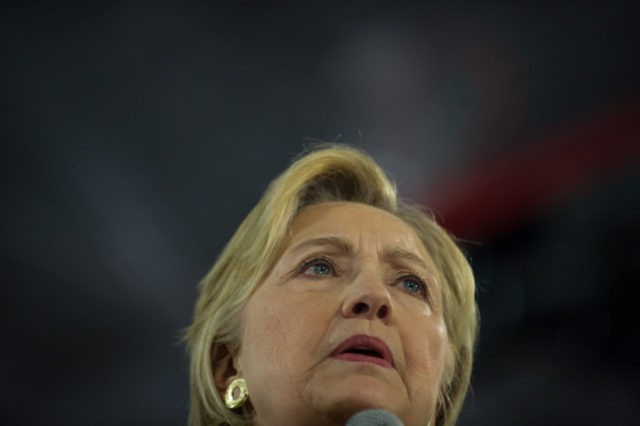WASHINGTON—Judicial Watch lawyers scored a victory against Hillary Clinton Friday when a federal judge ordered Clinton to provide sworn answers to written questions about her email scandal, though the judge denied the watchdog group’s request for the Democratic nominee to be compelled to provide verbal answers in a deposition.
This represents the next stage of Judicial Watch’s litigation in the D.C.-based federal district court to uncover all the facts related to Clinton’s use of a private home-brew email server while she was serving as Barack Obama’s secretary of state. District Judge Emmett Sullivan granted one of Judicial Watch’s discovery requests to force Clinton to personally answer questions under oath.
Discovery is the legal term for requiring the other party in a lawsuit to provide information. There are three basic types of discovery: depositions, interrogatories, and requests to produce documents. Judicial Watch requested that Clinton sit for a deposition.
Depositions are when an individual is placed under oath, then verbally asked questions, to which the person must immediately provide verbal responses. The person giving the responses (called a “deponent”) can have a lawyer present during questioning, but generally must answer the questions put to them. A stenographer records every word spoken, and depositions are frequently videotaped as well.
The judge denied that request, but granted the conservative group’s separate request for interrogatories, the legal term for written questions that the other side must answer in writing. This will give Clinton several weeks to work with her lawyers to carefully craft her responses in an effort to avoid a “smoking gun” moment, but they are still answers given under oath.
Sullivan’s approach here is reasonable. Depositions and interrogatories are both under oath, so if Clinton lies, it’s perjury either way. The judge is doubtless sensitive to the fact that allowing videotaped depositions would instantly translate to political attack ads. He’s trying to keep the case from becoming a media circus, but still moving the litigation forward into dangerous territory for Clinton.
The court is giving Judicial Watch until Oct. 14 to submit its questions to Clinton, which would mean that her responses would not be due until after the election. Judicial Watch is expected to pose its questions much sooner, however, ensuring that Clinton’s own words will become part of the campaign narrative before Americans go to the polls.
Ken Klukowski is senior legal editor for Breitbart News. Follow him on Twitter @kenklukowski.

COMMENTS
Please let us know if you're having issues with commenting.